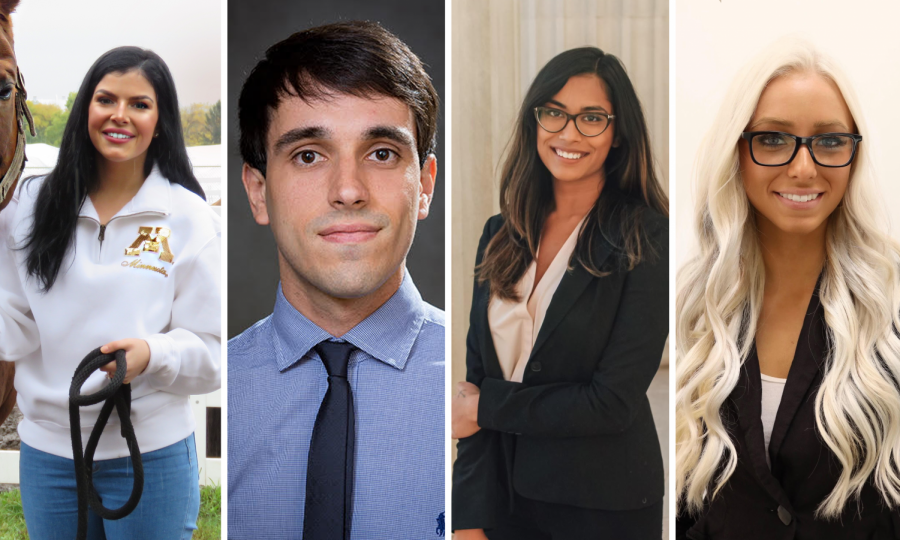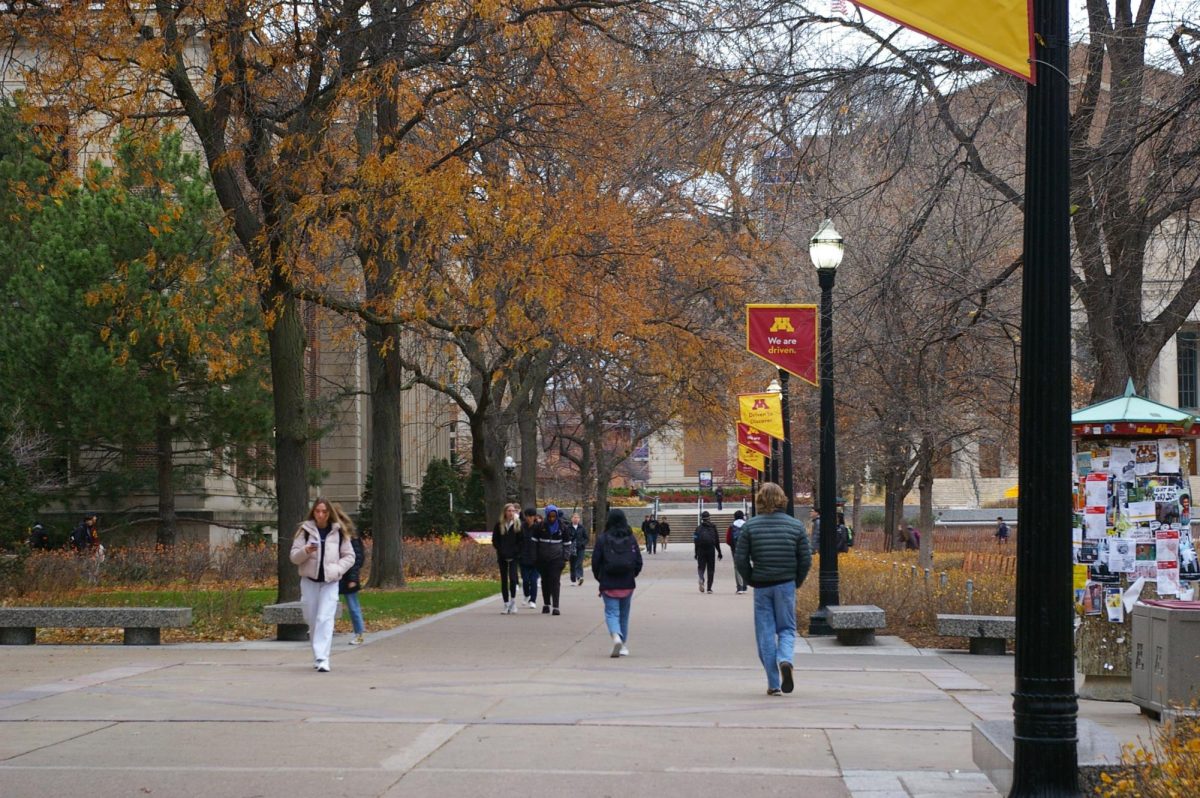With the approach of the all-campus elections, the University of Minnesota’s graduate and professional student government president and vice president candidates are running unopposed.
Students can vote in the all-campus elections between March 22 and March 26.
Rielle Perttu Swanson, candidate for COGS president
Rielle Perttu Swanson is the current Council of Graduate Students (COGS) representative to the Board of Regents. Now, in her second year as a Ph.D. candidate in the animal science department, Swanson is running to become the next president of COGS.
“I am really passionate about graduate student advocacy,” Swanson said. “This year I have stayed true to COGS advocacy [objectives] in my current role, and I feel like I would continue to do a good job in that role as president.”
This year Swanson has focused on holes in University health insurance plans and how the pandemic has affected students’ health benefits.
“As of right now, all University of Minnesota students that are on University health insurance do not have dental benefits outside of Boynton [Health] or any vision benefits,” Swanson said. “Students that no longer live in Minnesota during COVID cannot see any health care providers because everything is in-network in Minnesota through Blue Cross Blue Shield.”
If elected, Swanson said she hopes to continue COGS efforts to advocate for graduate students with abusive faculty and continue combating discriminatory policies and institutional racism at the University.
Federico Facciolo, candidate for COGS vice president
Federico Facciolo is a first-year Ph.D. student in the College of Pharmacy. Facciolo is also the current vice president of COGS — a role in which having some experience is a benefit, he said.
“This is a big school with many things going on, and it takes some time to understand how the administration works and how COGS tries to address problems. I can help with that,” Facciolo said. “I can provide some feedback and suggestions to new COGS members based on what happened this year.”
As an international student from Italy, Facciolo said he helped to provide insight on COGS’ advocacy efforts to address issues affecting international students at the University.
If reelected, Facciolo said he would like to continue to advocate for graduate students, which make up 24% of the University’s student population.
“I really would like to help to make a good culture at the University where everyone feels welcome, important and that their contributions will be acknowledged,” Facciolo said. “That is why it is important to advocate for graduate students because they do a lot for research and teaching, and they should be acknowledged for being a great success to this University.”
U.J. Bhowmik, candidate for PSG president
U.J. Bhowmik is no stranger to student government at the University. As an undergraduate student, Bhowmik served on the communications team for the Minnesota Student Association.
Now as a first-year law student, Bhowmik serves as a representative for first-year students in the Law School as a law school representative in Professional Student Government (PSG). She is also the current vice chair of the University Recreation and Wellness board.
“I really love this school,” Bhowmik said. “I have lived in five countries, and Minnesota has truly helped me discover who I am, so I have spent a lot of my time wanting to give back via student government — I want to make sure everyone is represented.”
Bhowmik wants to make school more accessible for students, which would mean using what the University has learned since many classes went virtual last spring, she said.
“I think that the [online school] format really allows for flexibility for students to stay in school when dealing with other issues,” Bhowmik said. “Maybe a student would not have to drop out for a semester if they could instead go home. I think this would increase accessibility to so many students.”
Victoria Anderson, candidate for PSG vice president
Victoria Anderson is in two master’s programs in the School of Public Health. With students returning to in-person classes in the fall, Anderson wants to emphasize student engagement as the PSG vice president.
“We want to include community engagement in making sure our students are happy, especially with coming back to school during the pandemic,” Anderson said. “Coming back to an in-person environment that you have not been in for a while can be difficult.”
Anderson currently serves in the University Student Senate as a representative for one of her programs, the Master of Public Health. As a public health student, Anderson said she wants to make sure that students in all programs have access to mental health resources — especially during a pandemic.



















